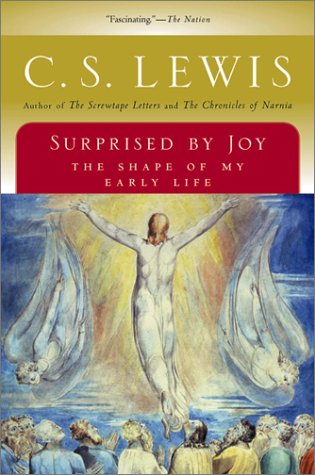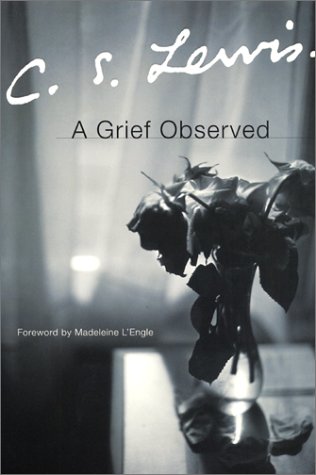Evil takes one true line about Aslan's character - "not a tame lion" - and twists it so as to give the completely wrong idea.
Tirian slaying the Calormen who were driving the Talking Horse reminds me of Moses killing the Egyptian in the book of Exodus.
The one dwarf who returns reminds me of the one leper who returns to give thanks to Christ.
"By mixing a little truth with it they had made their lie far stronger." Satan does this all the time.
"Tirian and his friends could only see the back of Rishda Tarkaan, so they never knew what his face looked like as he shrugged his shoulders and said, "Bear witness all that I am guiltless of this young fool's blood."" Just like Pilate.
Some of the animals join the Narnian side, and some the Calormenes, but most just slip away and don't choose either side. I wonder if this is how it will be for people at the last day.
Lewis' description of the inside of the stable is truly heavenly:
"They stood on grass, the deep blue sky was overhead, and the air which blew gently on their faces was that of a day in early summer."Said Queen Lucy,
"In our world too, a stable once had something inside it that was bigger than our whole world."It's so tragic that the dwarfs see only misery when they are actually surrounded by beauty. The ruin for themselves the beautiful feast that Aslan has provided for them.
"You see, " said Aslan. "They will not let us help them. They have chosen cunning instead of belief. Their prison is only in their own minds, yet they are in that prison; and so afraid of being taken in that they cannot be taken out.As Lewis said in Mere Christianity, "The point is not that God will refuse you admission to His eternal world if you have not got certain qualities of character: the point is that if people have not got at least the beginnings of those qualities inside them, then no possible external conditions could make a "Heaven" for them—that is, could make them happy with the deep, strong, unshakable kind of happiness God intends for us."
I think we definitely see this with the dwarfs inside the stable who will not see Heaven though Heaven is all around them. No possible external conditions could make a "Heaven" for them.
I like this depiction of the Judgement:
"As they came right up to Aslan one or other of two things happened to each of them. They all looked straight in his face, I don't think they had any choice about that. And when some looked, the expression of their faces changed terribly - it was fear and hatred... And all the creatures who looked at Aslan in that way swerved to their right, his left, and disappeared into his huge black shadow, which (as you have heard) streamed away to the left of the doorway. The children never saw them again. I don't know what became of them. But the others looked in the face of Aslan and loved him, though some of them were very frightened at the same time. And all these came in at the Door, in on Aslan's right. There were some queer specimens among them. Eustace even recognized one of those very Dwarfs who had helped to shoot the Horses. But he had no time to wonder about that sort of thing (and anyway it was no business of his) for a great joy put everything else out of his head."This gives a good image of what I think Lewis taught in Mere Christianity about our choices having an impact on the shape of our souls.
"Every time you make a choice you are turning the central part of you, the part of you that chooses, into something a little different from what it was before. And taking your life as a whole, with all your innumerable choices, all your life long you are slowly turning this central thing either into a heavenly creature or into a hellish creature: either into a creature that is in harmony with God, and with other creatures, and with itself, or else into one that is in a state of war and hatred with God, and with its fellow-creatures, and with itself."
There is also a subtle reminder of the idea expressed in The Great Divorce - that we cannot judge who will make it to heaven, and we may be surprised to see certain people there.
"Then the Moon came up, quite in her wrong position, very close to the sun, and she also looked red... The giant threw his horn into the sea. Then he stretched out one arm - very black it looked, and thousands of miles long - across the sky till his hand reached the Sun. He took the Sun and squeezed it in his hand as you would squeeze an orange. And instantly there was total darkness."An allusion to the end of the world in the book of Revelation and elsewhere.
One of my favourite lessons from this book is in the story of the young Calormene who worshipped Tash all his life. When he meets Aslan, he says,
I fell at his feet and thought, Surely this is the hour of death, for the Lion (who is worthy of all honour) will know that I have served Tash all my days and not him. Nevertheless, it is better to see the Lion and die than to be Tisroc of the world and live and not to have seen him. But the Glorious One bent down his golden head and touched my forehead with his tongue and said, Son, thou art welcome. But I said, Alas, Lord, I am no son of thine but the servant of Tash. He answered, Child, all the service thou hast done to Tash, I account as service done to me. Then by reasons of my great desire for wisdom and understanding, I overcame my fear and questioned the Glorious One and said, Lord, is it then true, as the Ape said, that thou and Tash are one? The Lion growled so that the earth shook (but his wrath was not against me) and said, It is false. Not because he and I are one, but because we are opposites, I take to me the services which thou hast done to him. For I and he are of such different kinds that no service which is vile can be done to me, and none which is not vile can be done to him. Therefore if any man swear by Tash and keep his oath for the oath's sake, it is by me that he has truly sworn, though he know it not, and it is I who reward him. And if any man do a cruelty in my name, then, though he says the name Aslan, it is Tash whom he serves and by Tash his deed is accepted. Dost thou understand, Child? I said, Lord, thou knowest how much I understand. But I said also (for the truth constrained me), Yet I have been seeking Tash all my days. Beloved, said the Glorious One, unless thy desire had been for me thou wouldst not have sought so long and so truly. For all find what they truly seek.Such truth.
When Aslan said you could never go back to Narnia, he meant the Narnia you were thinking of. But that was not the real Narnia. That had a beginning and an end. It was only a shadow or a copy of the real Narnia which has always been here and always will be here: just as our world, England and all, is only a shadow or copy of something in Aslan's real world. You need not mourn over Narnia, Lucy. All of the old Narnia that mattered, all the dear creatures, have been drawn into the real Narnia through the Door. And of course it is different; as different as a real thing is from a shadow or as waking life is from a dream.The fulfillment of joy and desire is in Aslan's country:
"I have come home at last! This is my real country! I belong here. This is the land I have been looking for all my life, though I never knew it till now. The reason why we loved the old Narnia is that it sometimes looked a little like this. Bree-hee-hee! Come further up, come further in!"Remember what Lewis wrote in Mere Christianity, "If I find in myself a desire which no experience in this world can satisfy, the most probable explanation is that I was made for another world." And in The Weight of Glory: "The books or the music in which we thought the beauty was located will betray us if we trust to them; it was not in them, it only came through them, and what came through them was longing... For they are not the thing itself; they are only the scent of a flower we have not found, the echo of a tune we have not heard, news from a country we have never yet visited."
I love this book because it's just so happy and it gives me a taste of what Heaven will be like! :) :) And it's a great reunion of all the characters in these books that I love so much. Reading it I feel that sweet pang of longing for something I've never experienced; but the longing itself is what I love.
"The term is over: the holidays have begun. The dream is ended: this is the morning." And as He spoke He no longer looked to them like a lion; but the things that began to happen after that were so great and beautiful that I cannot write them. And for us this is the end of all the stories, and we can most truly say that they all lived happily ever after. But for them it was only the beginning of the real story. All their life in this world and all their adventures in Narnia had only been the cover and the title page: now at last they were beginning Chapter One of the Great Story which no one on earth has read: which goes on forever: in which every chapter is better than the one before."And that is how my favourite series is ended, and that is the paragraph that always makes me cry with a bit of longing and a bit of joy. :)
AH I LOVE THESE BOOKS. READ THEM. ALL OF THEM. they're online here. and they're at your local library. :) get 'em. they will change your life.














No comments:
Post a Comment